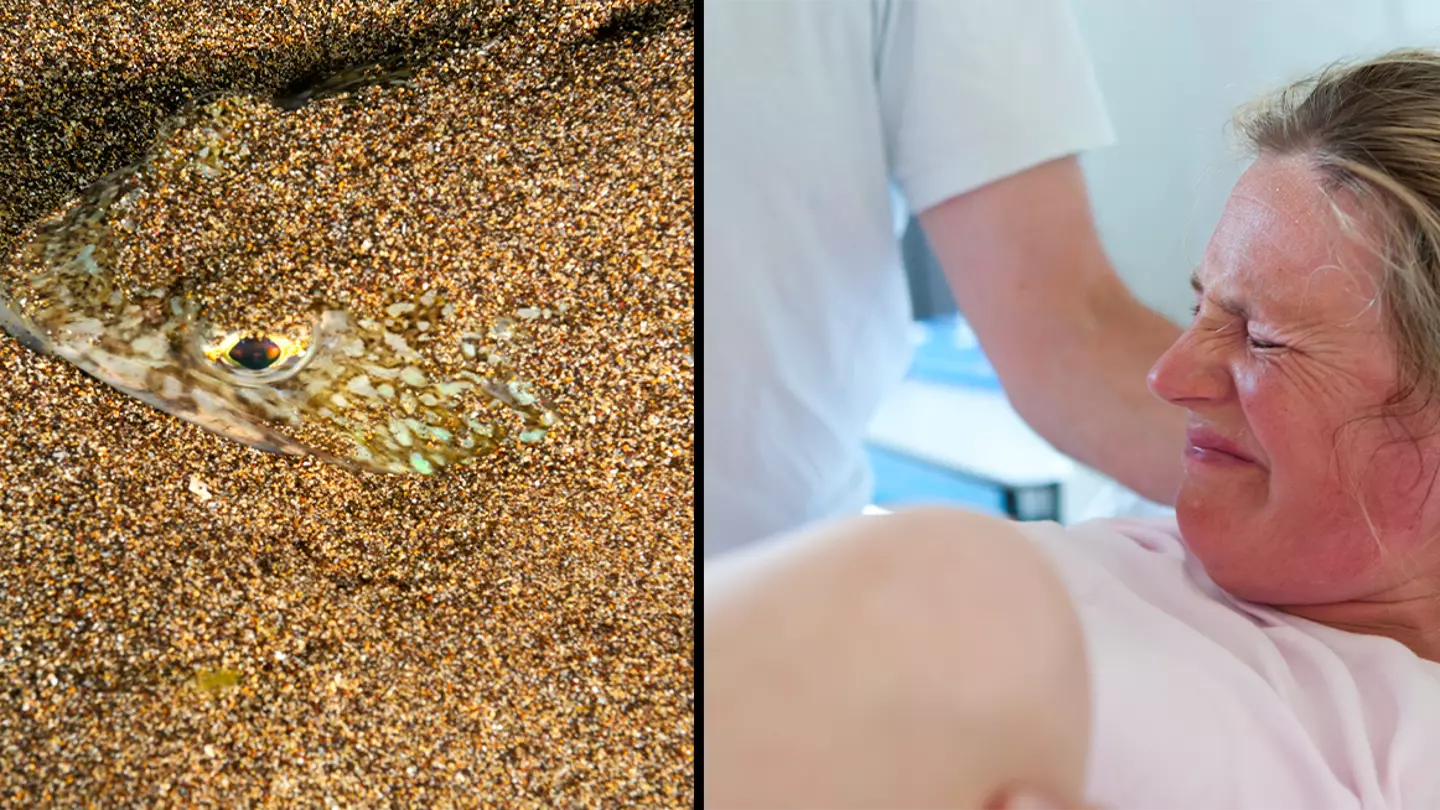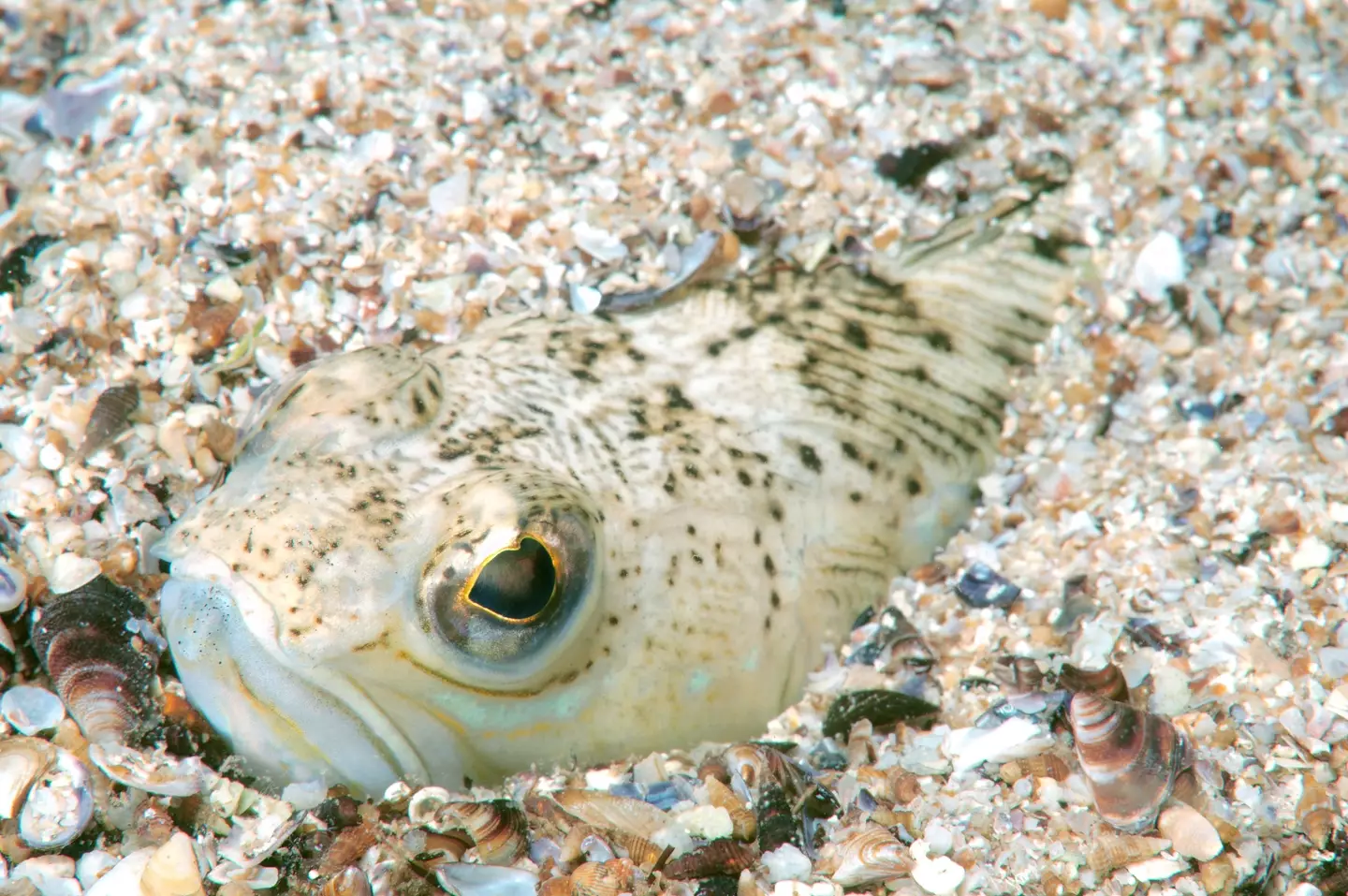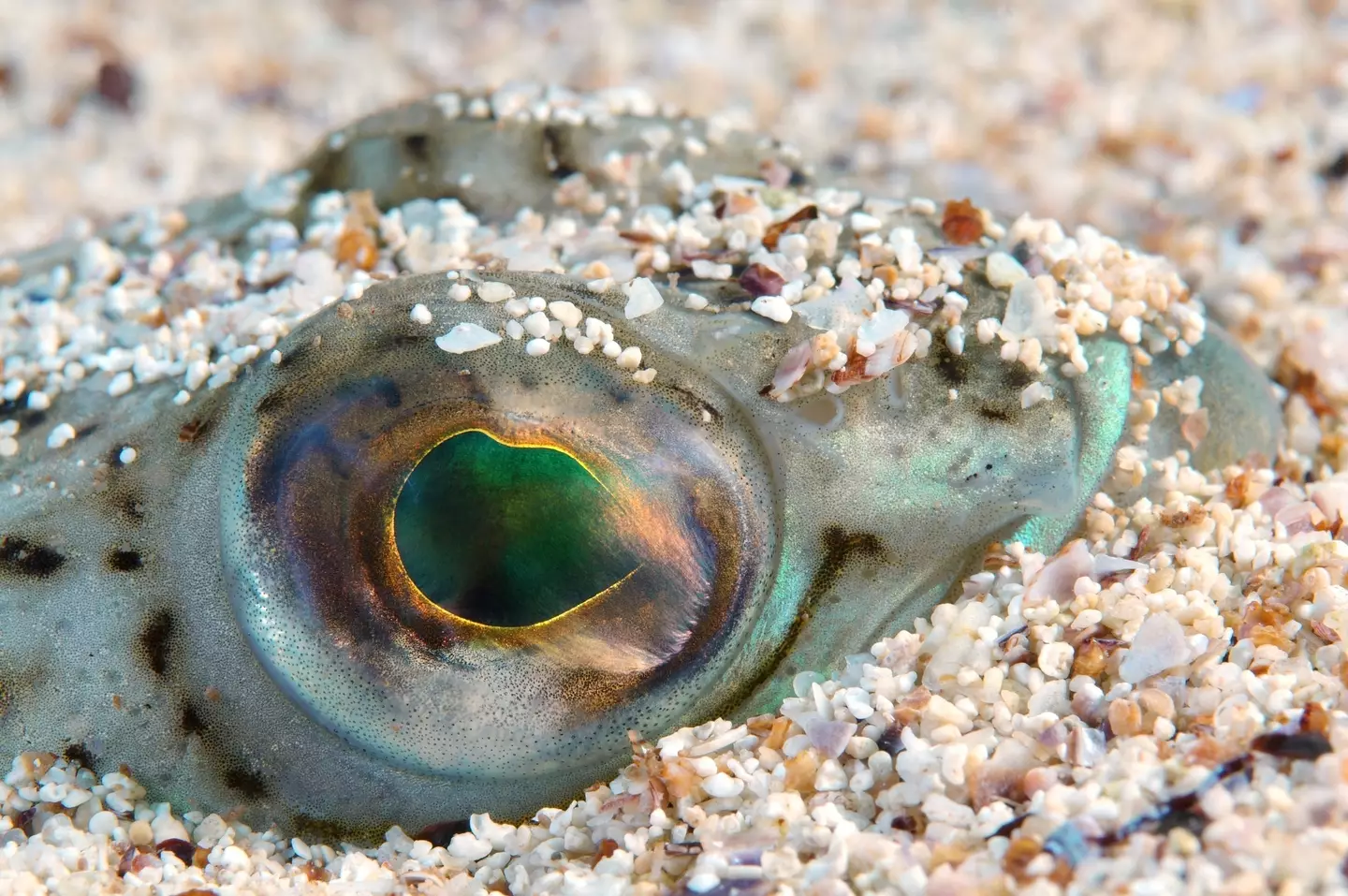
UK coastal swimmers have been warned to look out for a fish which is said to have a sting that can be 'as bad as childbirth'.
According to the RNLI, weever fish can be found burrowed in the sand during warm weather, mostly when there is a low tide, with their poisonous dorsal spines sticking up.
Wild Swim Wales commented: "If you step on one, you'll know about it! It's said to be as bad as childbirth!"
The warning is timely given the record-breaking temperatures we've just had and the subsequent warming of coastal waters. In addition, with the summer holiday kicking off there's likely to be an influx of people getting into the water.
Advert

There are a couple of ways you can avoid being stung though. The small sand-coloured fish won't be able to get you if you wear something on your feet at the beach. You can also stamp on the ground, which usually encourages the fish to move.
If you are one of the unfortunate few who do get stung by a weever fish, however, the advice is to plunge your foot into the hottest water you can bear for 30 minutes without burning yourself.
If you're able to do that then it should draw the poison out. However, if that doesn't work it's important to call 999.
Telltale signs that you've been stung include puncture marks, swelling and red skin. Most lifeguard stations have facilities to help if you come across one.
In the UK, we largely only have to deal with the odd nasty bite or sting that can be dealt with by - at worst - a trip to A&E. However, that's not the case in other countries.
In 2020 in Florida, USA Health officials in Florida, USA, were forced to issue a warning after a person contracted a rare brain-eating amoeba.

The Florida Department of Health (DOH) confirmed one person in Hillsborough County had been infected with Naegleria fowleri.
The microscopic single-celled parasite can found in warm freshwater and enters through the nose.
From there, it travels to the brain where it causes an infection which is usually fatal. Indeed, of the 143 confirmed cases of the disease in the country between 1962 and 2016, only four have survived.
At the time, the DOH issued a statement saying: The DOH said: "The amoeba can cause a rare infection of the brain called primary amebic meningoencephalitis (PAM) that destroys brain tissue and is usually fatal.
"The amoeba is commonly found in warm freshwater such as lakes, rivers, ponds and canals.
"Infections usually occur when temperatures increase for a prolonged periods of time, which results in higher water temperatures and lower water levels.
"Though there are only 37 reported cases with exposure in Florida since 1962, DOH cautions those who swim and dive frequently in Florida's lakes, rivers and ponds during warm temperatures about the possible presence of Naegleria fowleri."
Topics: UK News, Weather, Animals, Environment
